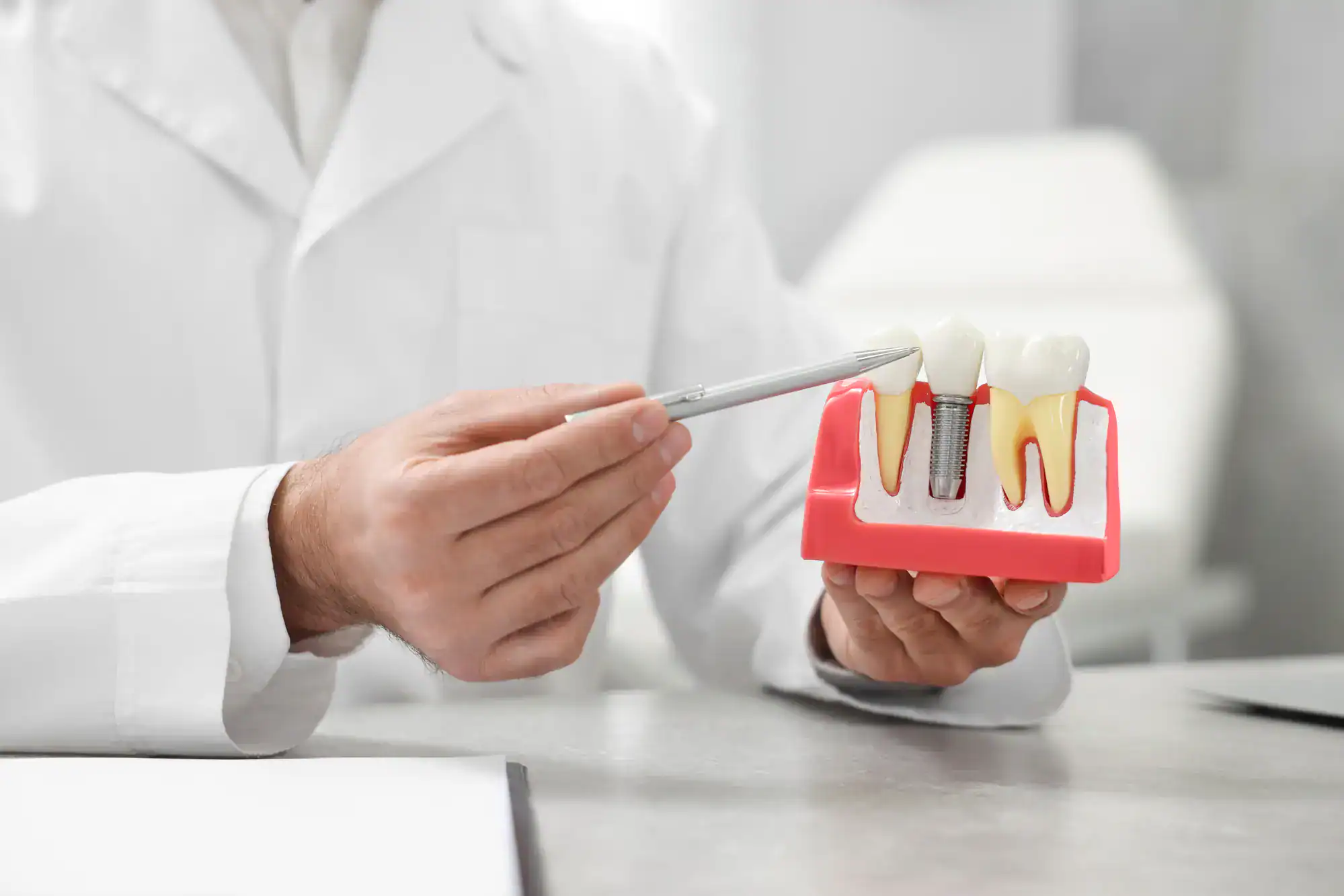
Hear from Our Customers

You’ll eat whatever you want without thinking twice. Steak, corn on the cob, apples—everything’s back on the menu. Your smile photographs beautifully again, and you stop covering your mouth when you laugh.
The confidence hits differently when your teeth feel completely natural. No slipping, no clicking, no wondering if someone notices. Just you, living normally, with teeth that work the way they’re supposed to.
Most patients forget which teeth are implants within months. That’s exactly what we’re aiming for—a solution so seamless, you forget you ever had a problem.
Dr. Scott Kupetz has been placing dental implants throughout Albany County since 1988. That’s over thirty years of helping Altamont residents get their lives back with permanent tooth replacement.
You won’t find corporate rush jobs here. This is a family-owned practice where Dr. Kupetz knows what it’s like to live and work in this community. We understand you need dental care that actually fits your life.
The numbers back up our experience: dental implants have a 98% success rate, and our patients regularly tell us they wish they’d done this years earlier. When you’re ready to stop managing a dental problem and actually solve it, you’re in the right place.

First, we’ll take detailed scans and X-rays to map out your jawbone. No guesswork—we plan every implant placement precisely before we start. If you need sedation, we’ve got you covered. Dr. Kupetz specializes in helping anxious patients get through procedures comfortably.
The titanium implant goes into your jawbone where your tooth root used to be. Your bone grows around it over the next 6-8 weeks, creating a foundation stronger than your original tooth. You can wear a temporary tooth during healing if needed.
Once everything’s integrated, we attach your custom crown. It’s matched to your other teeth in color, shape, and size. The whole process typically takes 2-4 months from start to finish, but you’re not dealing with pain or major disruption during that time.

Ready to get started?
Single tooth implants replace one missing tooth without touching the healthy teeth next to it. No grinding down good teeth for a bridge—just a direct replacement that stands on its own.
Multiple tooth implants can support bridges when you’re missing several teeth in a row. Full mouth dental implants and All-on-4 solutions replace entire arches with just four strategically placed implants. Even if you’ve been told you don’t have enough bone, mini implants might be an option.
Albany County residents choose us because we handle every implant solution right here. Whether you need one tooth or a complete smile makeover, we’ll customize the approach to your specific situation and budget. No referrals to other offices—everything happens in Altamont.

Single tooth implants typically range from $3,000-$5,000 including the implant, abutment, and crown. Full mouth solutions vary widely based on how many implants you need and what type of restoration works best for your situation.
The real question is cost over time. Dentures need adjustments, relines, and eventual replacement. Bridges often fail when the supporting teeth develop problems. Dental implants can last decades with proper care, making them more cost-effective long-term. We’ll give you exact numbers during your consultation and help you understand what your insurance covers.
Age isn’t the limiting factor—your overall health and bone density are what matter. We’ve successfully placed implants in patients well into their 80s who had good oral health and adequate bone structure.
The key requirements are healthy gums, sufficient jawbone to support the implant, and good healing capacity. If you’ve been missing teeth for years, you might need bone grafting first, but that doesn’t disqualify you. During your consultation, we’ll evaluate your specific situation and let you know exactly what’s possible for your case.
With proper care, dental implants can last 25+ years, often for life. The titanium implant itself rarely fails once it’s integrated with your jawbone. The crown on top might need replacement after 10-15 years due to normal wear, but that’s a simple procedure.
Success depends on maintaining good oral hygiene and regular dental checkups. Smoking significantly reduces implant lifespan, and untreated gum disease can cause problems. But for most patients who follow post-operative instructions and keep up with cleanings, implants outlast every other tooth replacement option by decades.
Dr. Kupetz specializes in sedation dentistry specifically for patients with dental anxiety. We offer oral sedation, nitrous oxide, and IV sedation depending on your comfort level and the complexity of your procedure.
Most patients are surprised how comfortable the process actually is. The implant site is completely numb during placement, and many people report less discomfort than they expected. We’ll discuss your anxiety level during consultation and create a sedation plan that works for you. You don’t have to white-knuckle through this—we want you relaxed and comfortable.
Gum disease needs to be treated and stabilized before implant placement. Active infection around an implant site significantly increases the risk of implant failure, so we address periodontal issues first.
The good news is that most gum disease is treatable. We’ll evaluate the extent of the problem and recommend appropriate treatment—sometimes it’s as simple as a deep cleaning and improved home care. Once your gums are healthy, dental implants become a viable option again. The timeline might be longer, but we’d rather do it right than risk implant complications later.
Initially, yes—any new restoration feels different until you adjust. But within a few weeks, most patients completely forget which teeth are implants. The chewing force, the way food feels, even the temperature sensitivity all normalize.
Implants don’t have the same nerve supply as natural teeth, so you won’t feel pressure quite the same way. But functionally, they’re nearly identical. You can bite into apples, chew steak, and eat corn on the cob without thinking about it. That’s the whole point—getting back to normal eating and speaking without constantly managing a dental appliance.
Other Services we provide in Altamont